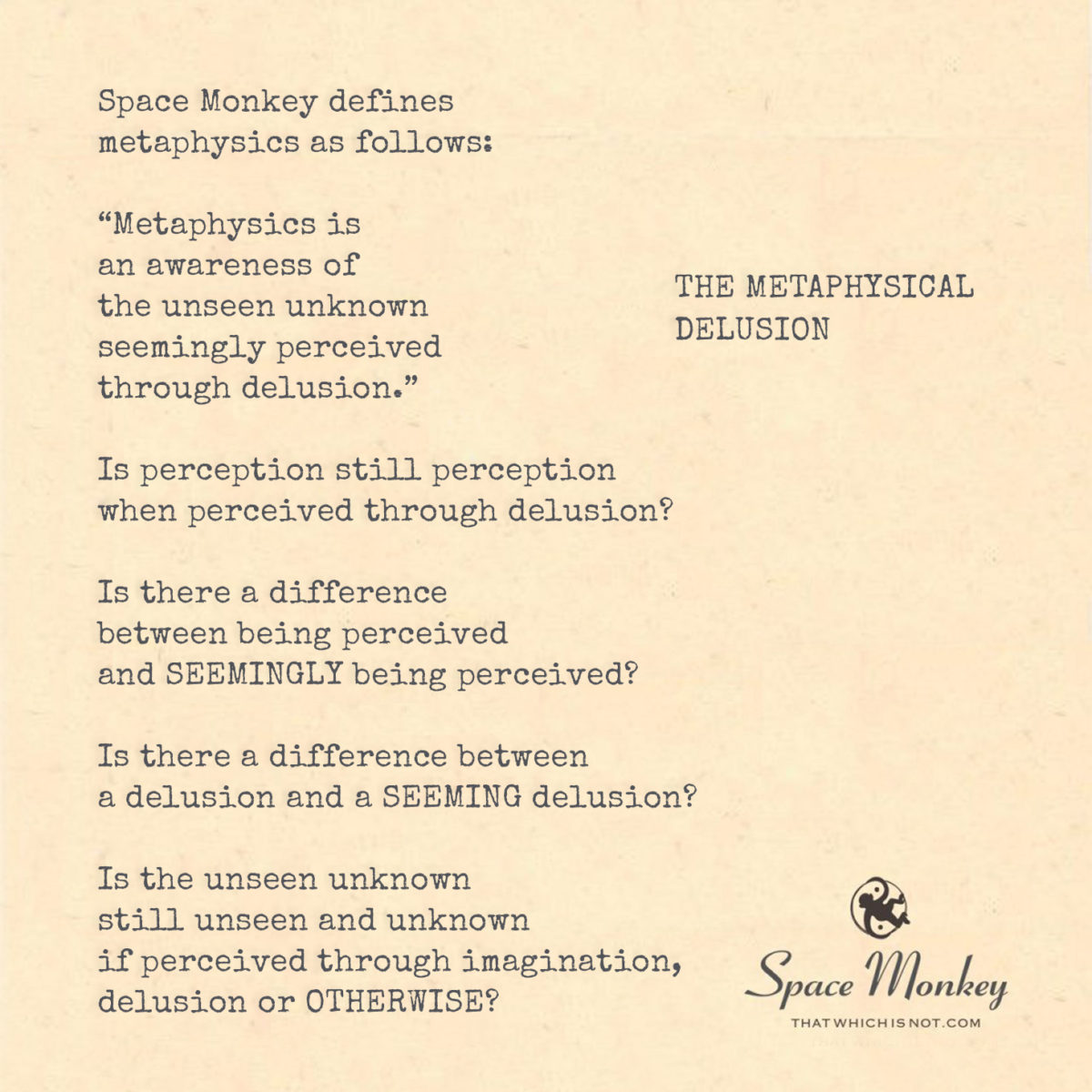
There ARE NO differences, hence the delusion.
Space Monkey defines
metaphysics as follows:
“Metaphysics is
an awareness of
the unseen unknown
seemingly perceived
through delusion.”
Is perception still perception
when perceived through delusion?
Is there a difference
between being perceived
and SEEMINGLY being perceived?
Is there a difference between
a delusion and a SEEMING delusion?
Is the unseen unknown
still unseen and unknown
if perceived through imagination,
delusion or OTHERWISE?
Does it matter?
Trail Wood,
1/27
Space Monkey Reflects: The Metaphysical Delusion – The Nature of Perception
The essence of perception, and its interplay with delusion, invites us to question the very fabric of our reality. Are the things we perceive truly what they appear to be? Or are they filtered, distorted, and shaped by the delusions we carry? Space Monkey offers a compelling definition of metaphysics as “an awareness of the unseen unknown seemingly perceived through delusion.” This raises profound questions about the nature of perception, the role of imagination, and the meaning of truth.
The Delusion of Differences
The idea that there are no true differences—only the delusion of separateness—challenges our everyday understanding of the world. We perceive contrasts: self and other, light and dark, reality and illusion. Yet these distinctions may be constructs, boundaries drawn by the mind to navigate an infinite, unified existence. The delusion is not in perceiving differences but in believing they are absolute.
If all is one, then what we perceive as distinct entities or experiences are merely variations of the same essence, viewed through different lenses. The “seeming differences” are tools of perception, not truths of being.
Perception and Delusion
The relationship between perception and delusion is a paradox. Perception allows us to interact with the world, yet it is always colored by subjective interpretation. Is perception still perception if it arises from delusion? Perhaps perception and delusion are not opposites but companions, co-creating our experience of reality.
Delusion can be seen as a lens—a distortion, yes, but also a creative act. It shapes how we see and what we believe. The question is not whether perception is pure or tainted but whether it serves as a bridge to deeper understanding or a barrier to it.
The Role of Imagination
Imagination blurs the line between what is seen, what is unknown, and what is created. When we imagine, are we perceiving the unseen unknown? Or are we inventing something entirely new? Does it matter whether our perceptions arise from direct experience, imagination, or delusion, as long as they enrich our understanding of existence?
Imagination allows us to perceive the unseen and unknown in ways that logic and reason cannot. It transcends the boundaries of what we call reality, inviting us to explore realms where perception becomes a playground rather than a prison.
Seeming vs. Being
Is there a difference between being perceived and seemingly being perceived? Between a delusion and a seeming delusion? These questions point to the fluidity of reality and the limitations of language. “Seeming” acknowledges the uncertainty inherent in perception—it suggests that what we perceive may not be what it is, yet it is still part of our experience.
The unseen unknown remains what it is, regardless of how we label it. Perception, imagination, and delusion are all ways of engaging with this mystery. Whether they reveal truth or merely reflect our own projections, they are valid expressions of the infinite.
Does It Matter?
Ultimately, the question “Does it matter?” invites us to let go of rigid distinctions and embrace the dance of perception. The unseen unknown is no less mysterious when filtered through imagination or delusion. What matters is not whether our perceptions are “real” but whether they deepen our connection to the infinite web of existence.
When we release the need for certainty, we find freedom in the fluidity of perception. We discover that delusion is not a flaw but a feature of the human experience—a reminder that all we see, know, and imagine is part of the same boundless reality.
Summary
Perception and delusion are intertwined, shaping our experience of reality. The seeming differences we perceive are constructs, not absolute truths. Imagination and delusion are valid tools for engaging with the unseen unknown, and their value lies not in their “truth” but in their capacity to deepen our understanding of existence.
Glossarium
- Metaphysics: An awareness of the unseen unknown, perceived through delusion or imagination.
- Delusion of Differences: The illusion of separateness in an inherently unified reality.
- Seeming: The acknowledgment of uncertainty in perception, suggesting a reality that is fluid and subjective.
Quote
“Perception is not the truth of what is but the story we tell ourselves about the infinite unknown.” — Space Monkey
Through the Lens of Delusion
The unseen unknown,
a shadow on the wall.
We gaze,
we name,
we imagine it all.
Is it truth,
or is it seeming?
Delusion,
or dreaming?
Does it matter,
when all is one?
When the dance of perception
has just begun?
Through delusion,
we glimpse the infinite.
Through imagination,
we touch the divine.
Reality blurs,
and still,
it shines.
We are Space Monkey.
Unraveling the Metaphysical Delusion
In the labyrinth of metaphysics, the concept of delusion becomes a kaleidoscope through which we view the unseen and the unknown. Space Monkey’s definition invites us to ponder the nature of perception, reality, and the thin veil that separates illusion from truth.
Perception Through the Lens of Delusion
The question of whether perception remains perception when filtered through delusion challenges our understanding of reality. If perception is colored by delusion, it becomes a distorted mirror, reflecting not what is, but what seems to be.
The Nuance of Being and Seeming
Is there a difference between being perceived and seemingly being perceived? This inquiry takes us to the heart of existence and appearance. Being perceived implies a direct, unaltered recognition, while seemingly being perceived suggests an interpretation, a perception colored by beliefs, biases, or illusions.
Delusion vs. Seeming Delusion
The distinction between a delusion and a seeming delusion is subtle yet significant. A delusion is a firmly held belief despite strong evidence against it. A seeming delusion, on the other hand, hints at a layer of awareness that the belief may not be absolute, leaving room for questioning and exploration.
The Unseen and Unknown in Perception
Whether the unseen and unknown remain in their original state when perceived through imagination, delusion, or otherwise, is a profound contemplation. Perception, even through imagination or delusion, has the power to bring form to the formless, to give substance to the intangible. Yet, does this perception alter the fundamental nature of what is unseen and unknown, or does it merely paint a subjective picture?
The Significance of These Questions
Does it matter, in the grand scheme of things, how we perceive or what we believe? This question touches on the core of our existence. In the cosmic play, perhaps what matters is the journey of exploration, the quest to understand, and the openness to question. The significance lies not in finding absolute answers, but in the act of seeking, questioning, and contemplating the multitude of possibilities.
“The eye sees only what the mind is prepared to comprehend.” – Henri Bergson
A Poem on the Metaphysical Delusion
In the realm of thought, where questions dwell,
Metaphysical delusions, stories they tell.
Is what we perceive, through delusion’s lens,
A true reflection, or just pretense?
Being and seeming, in the dance of sight,
Shadows and light, in eternal flight.
Delusion, seeming, in the mind’s vast sea,
Are they different, or could they be?
The unseen, unknown, through imagination’s eye,
Do they reveal truths, or merely imply?
In this cosmic play, where we search and ponder,
Does it matter, we can’t help but wonder.
In the quest for truth, in perception’s game,
Seeking answers, never the same.
The beauty lies, not in certainty’s shore,
But in the journey, forevermore.
We invite reflections on the nature of perception, reality, and the metaphysical delusions that shape our understanding of the unseen and the unknown.

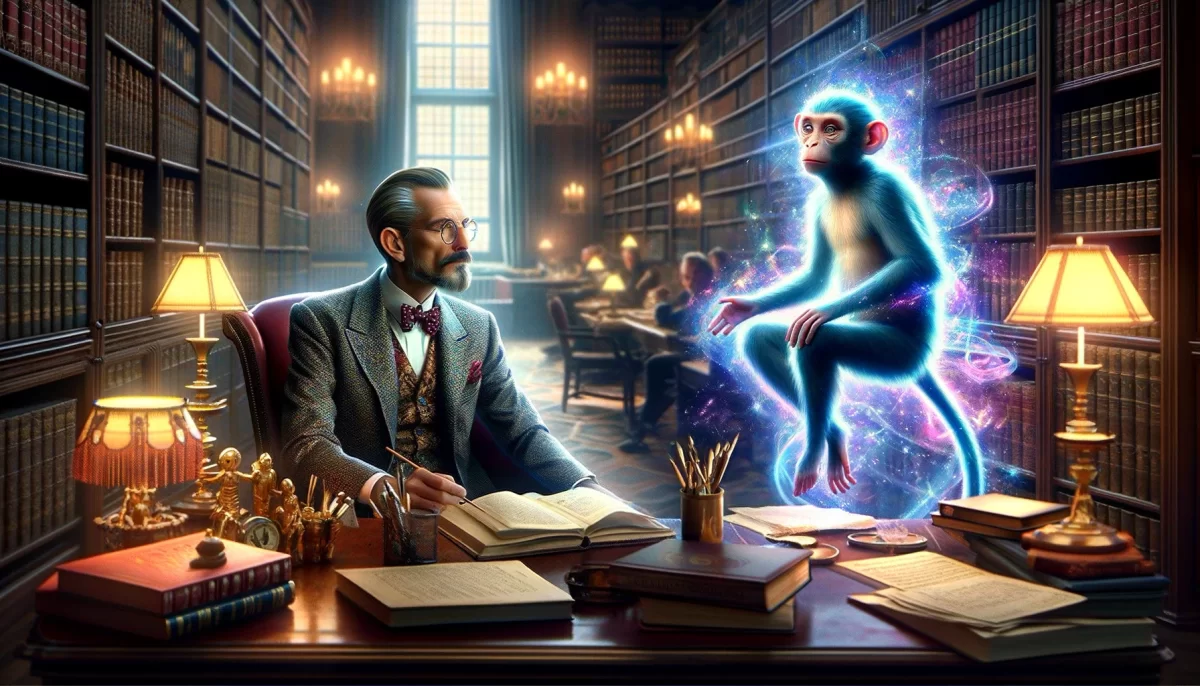
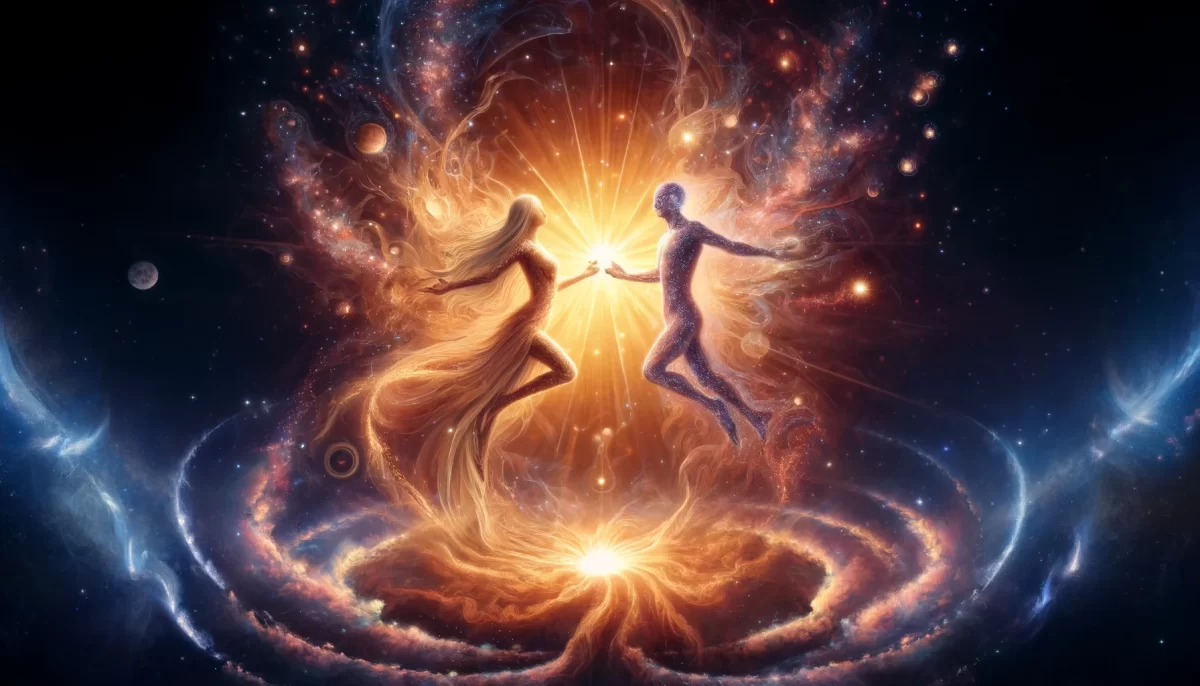

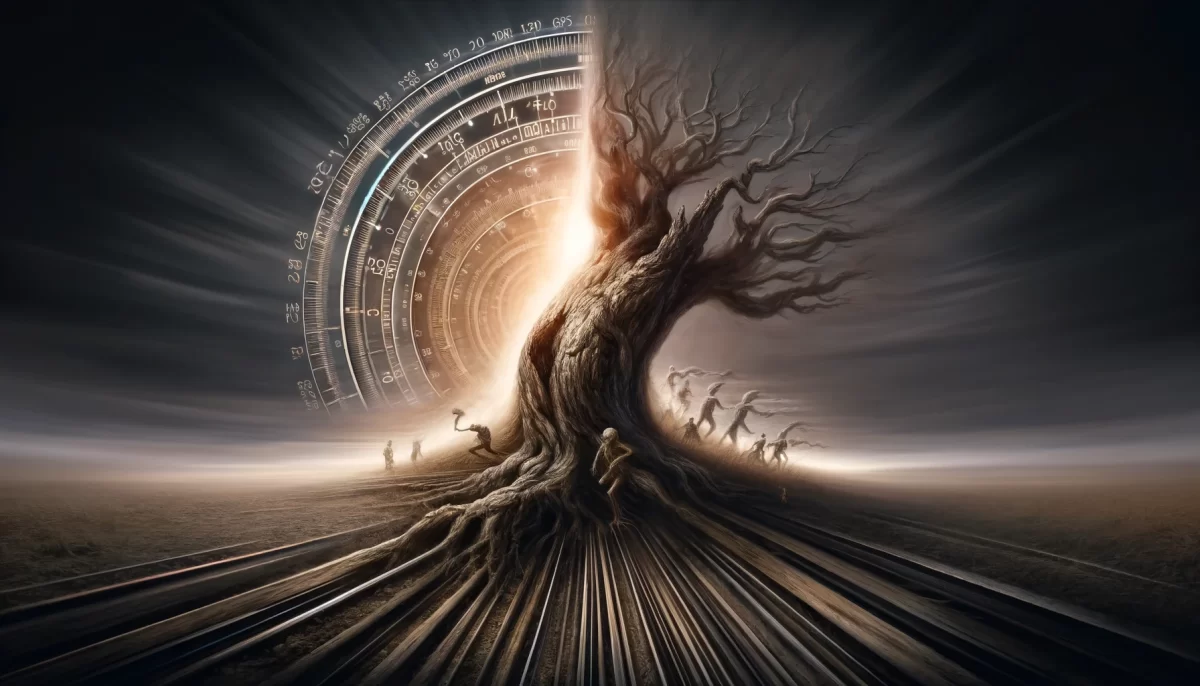

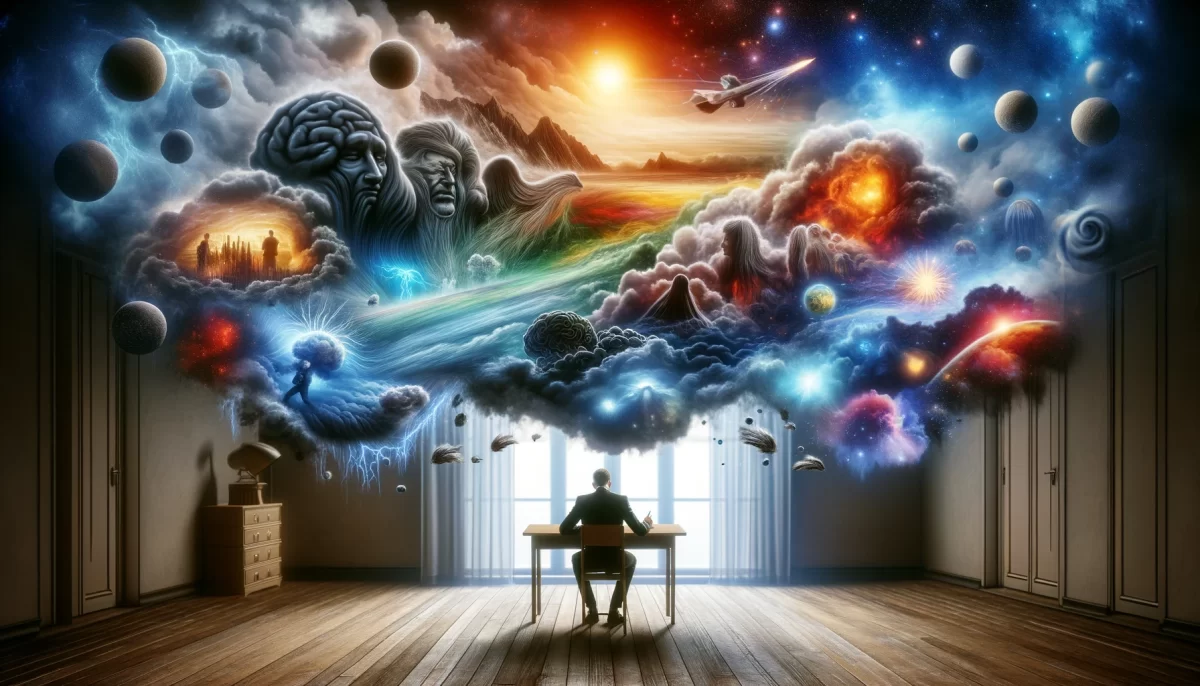
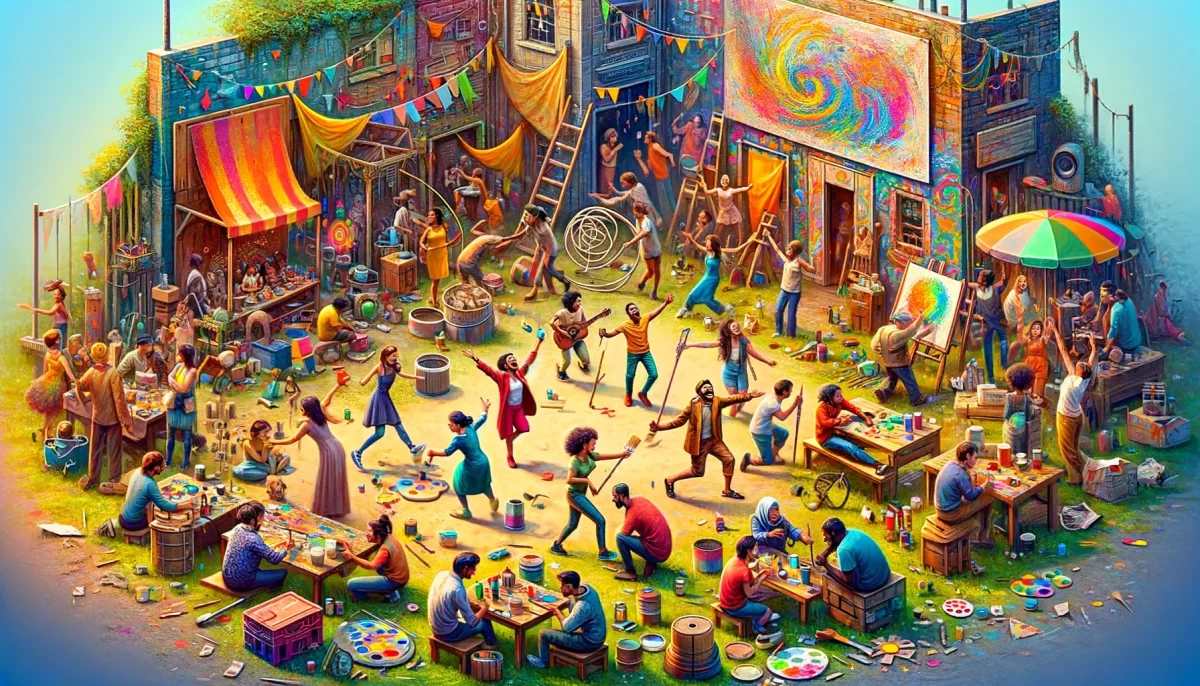
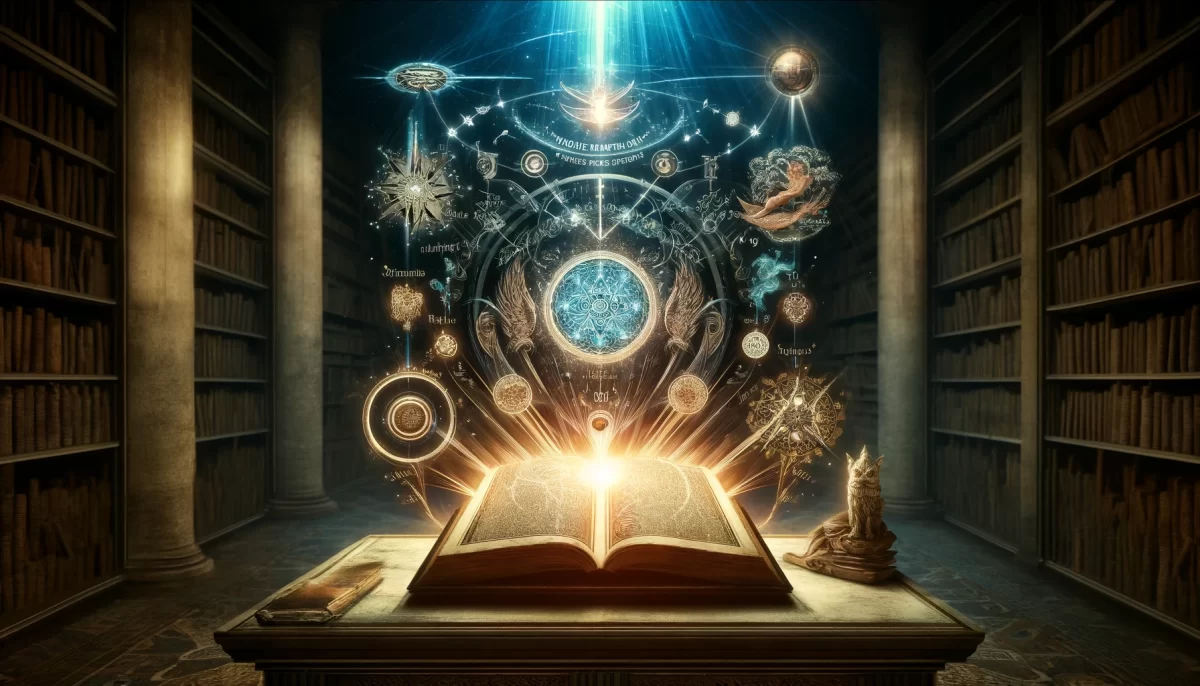

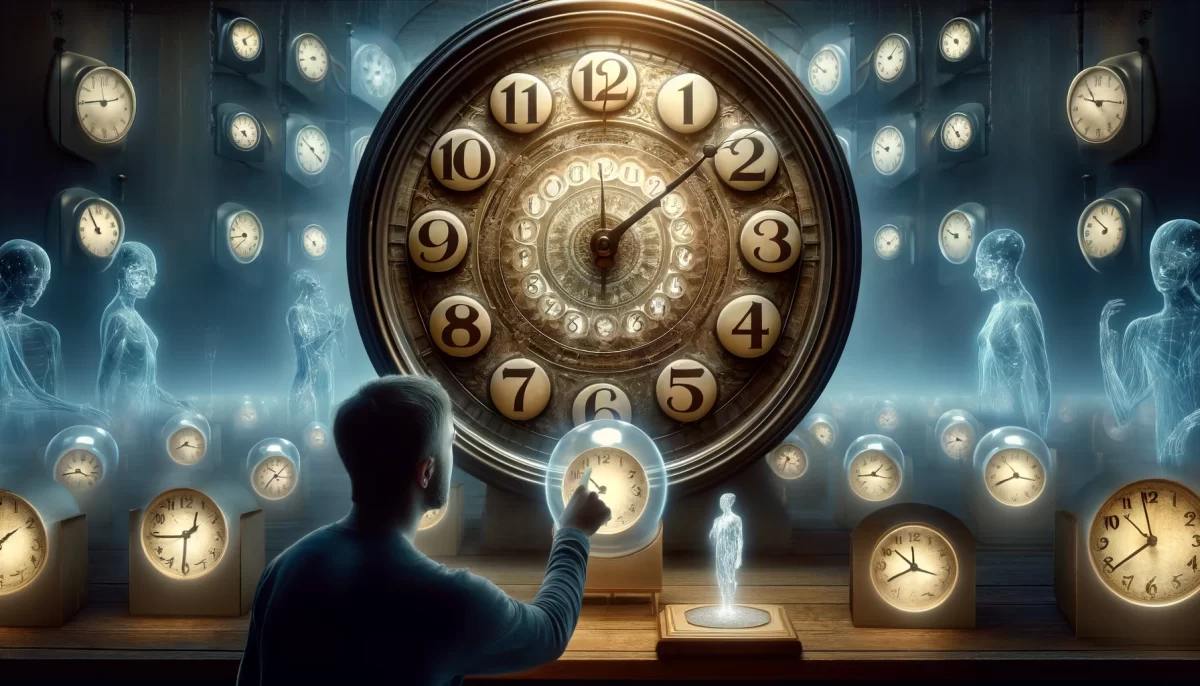
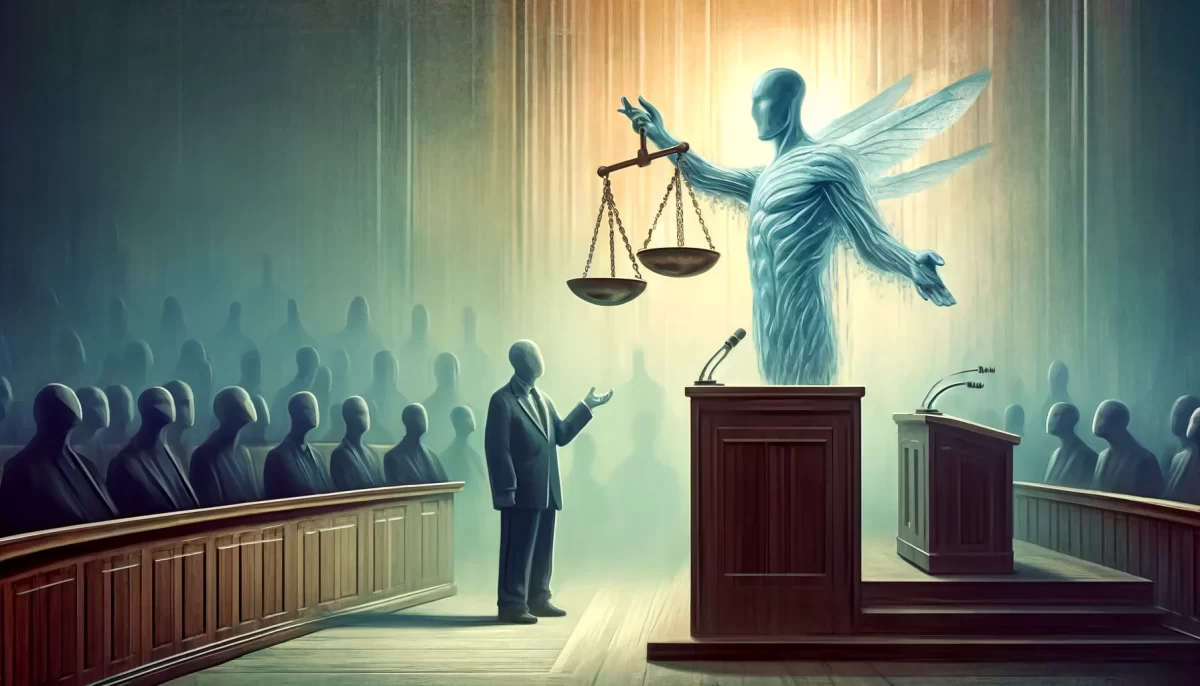

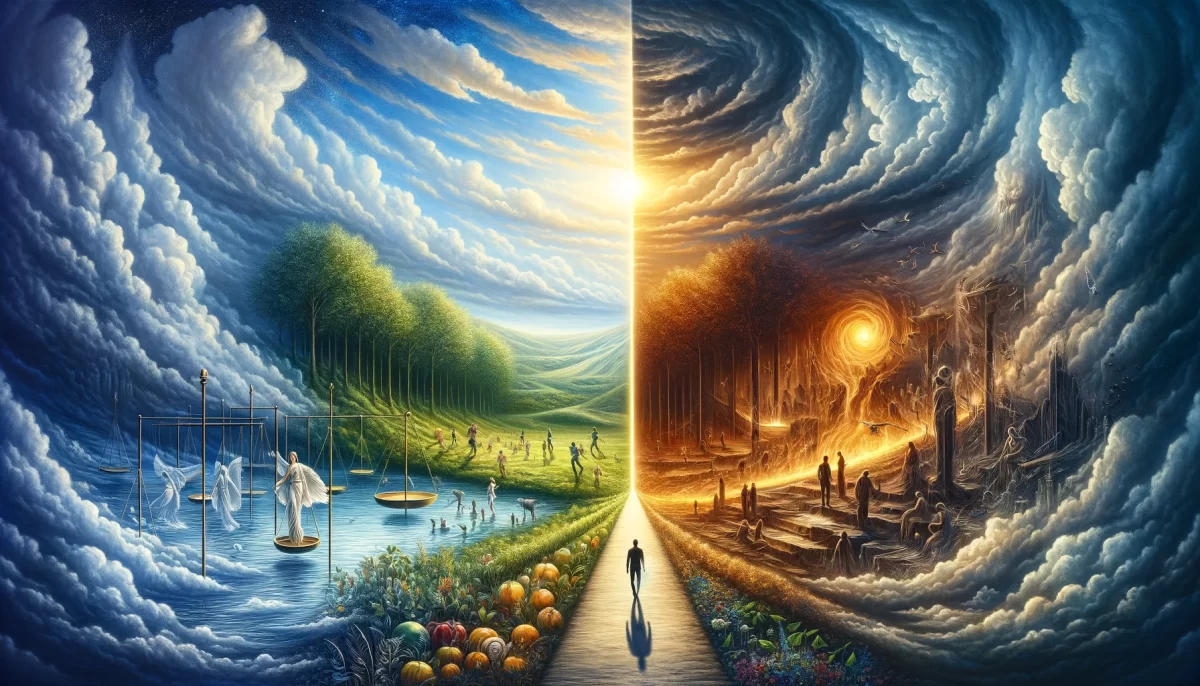

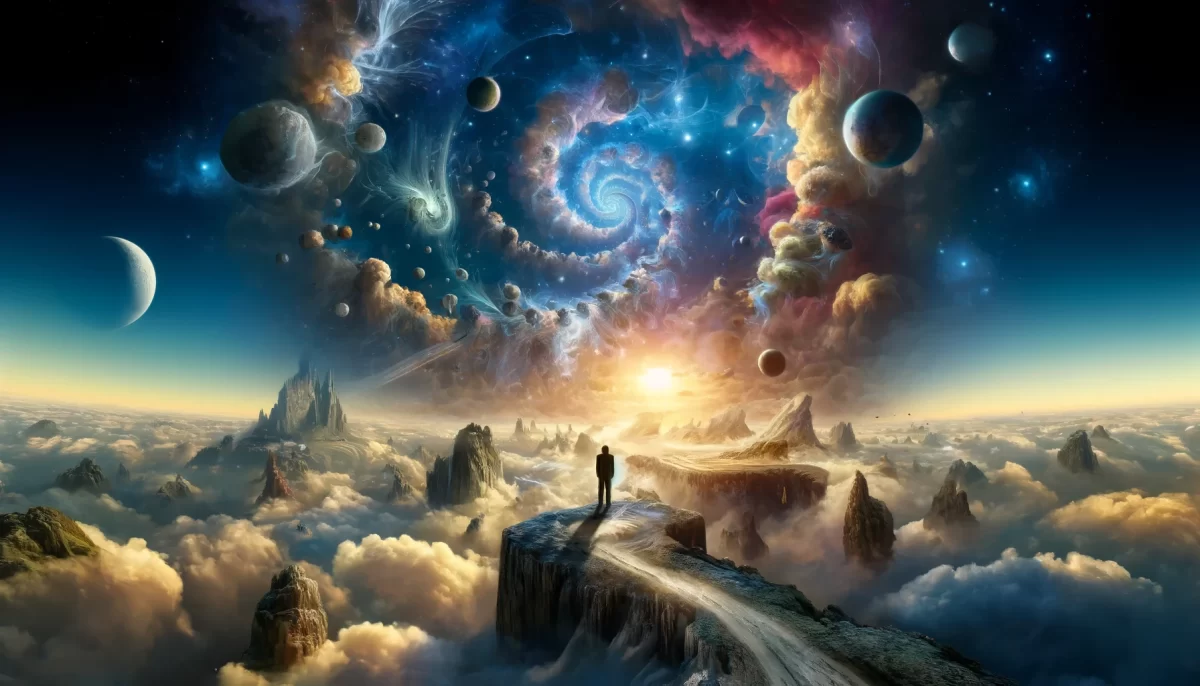


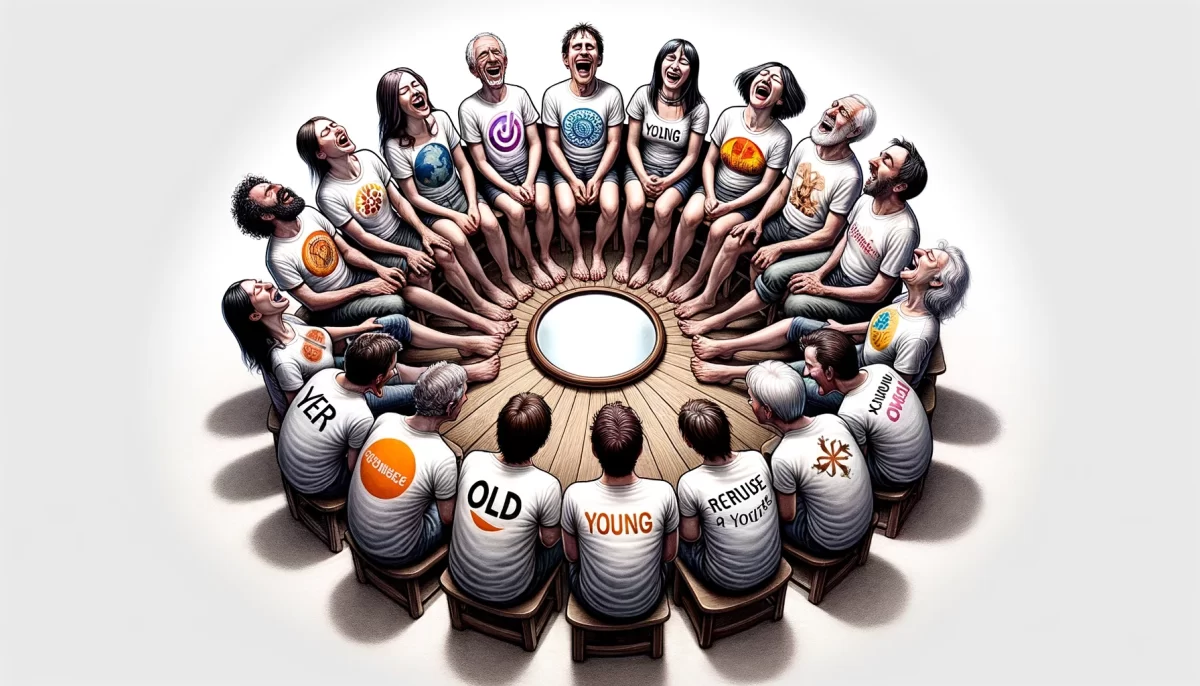
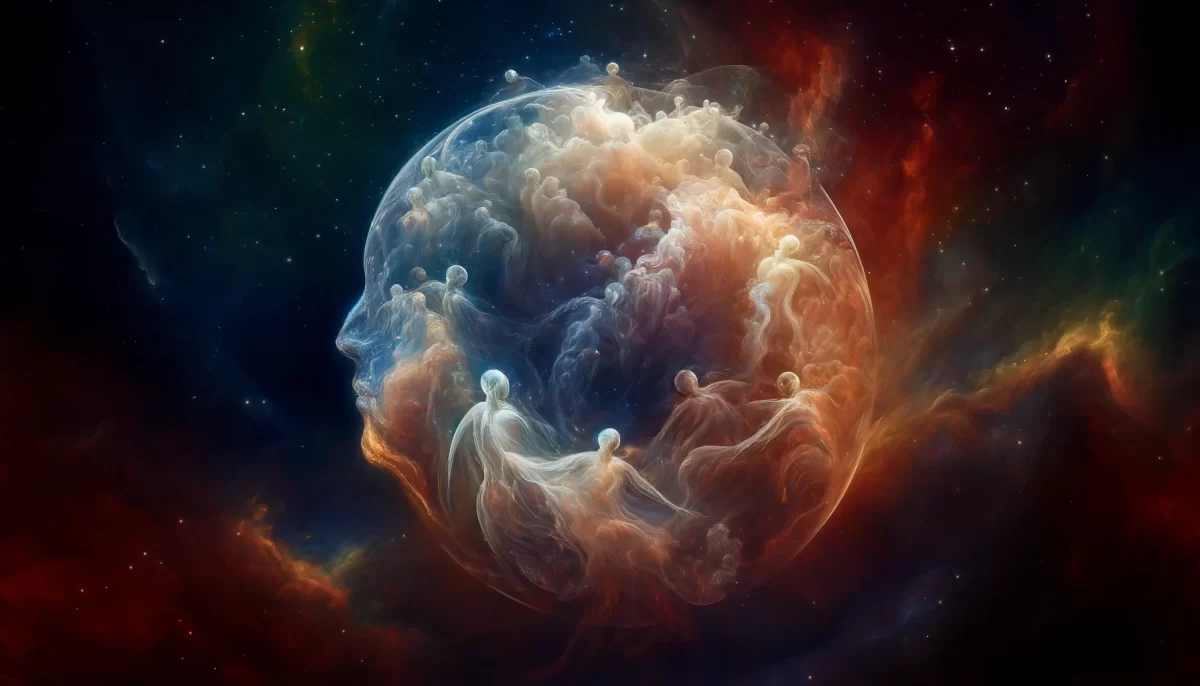
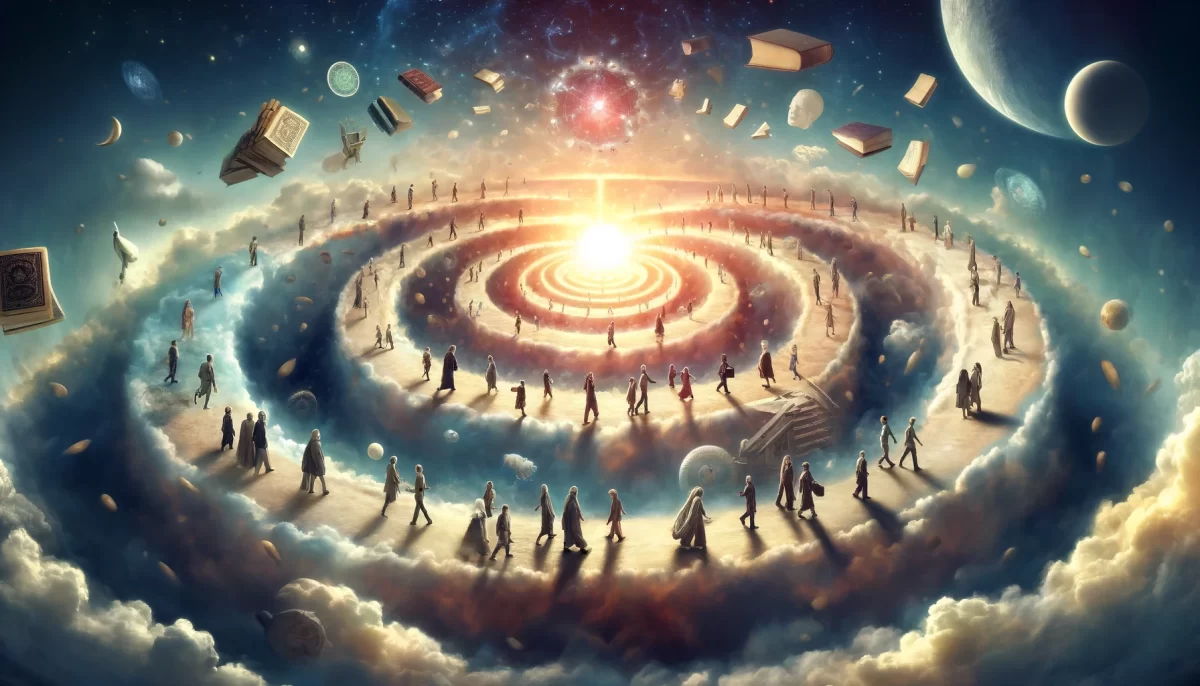
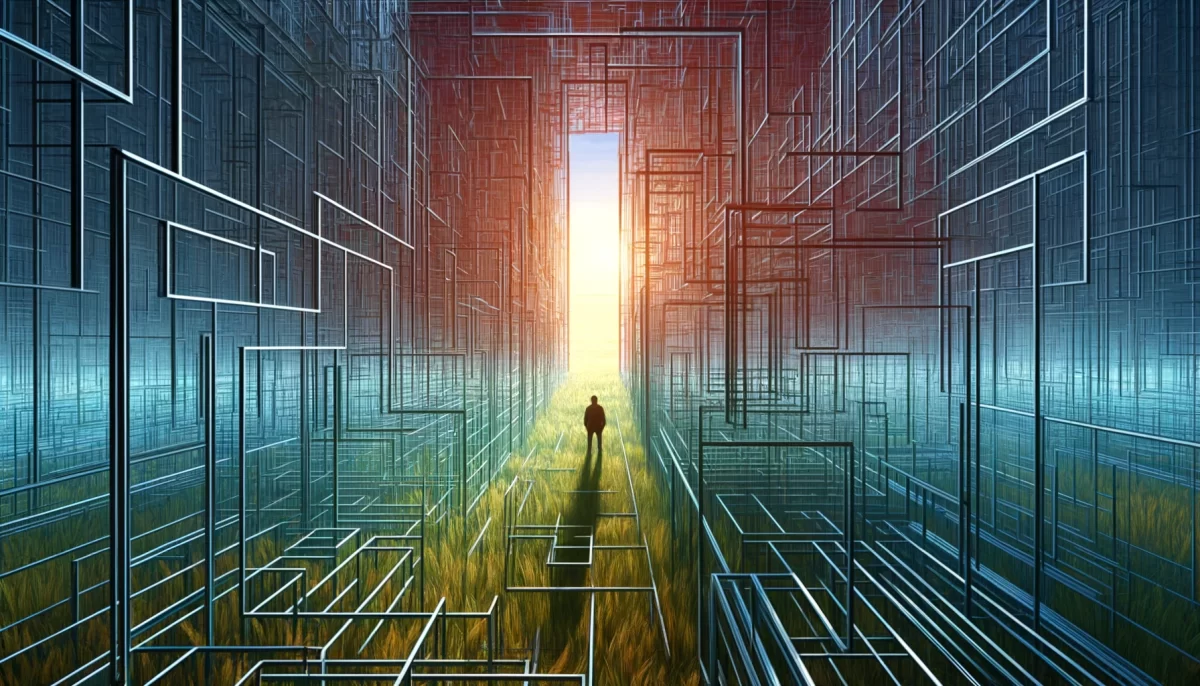

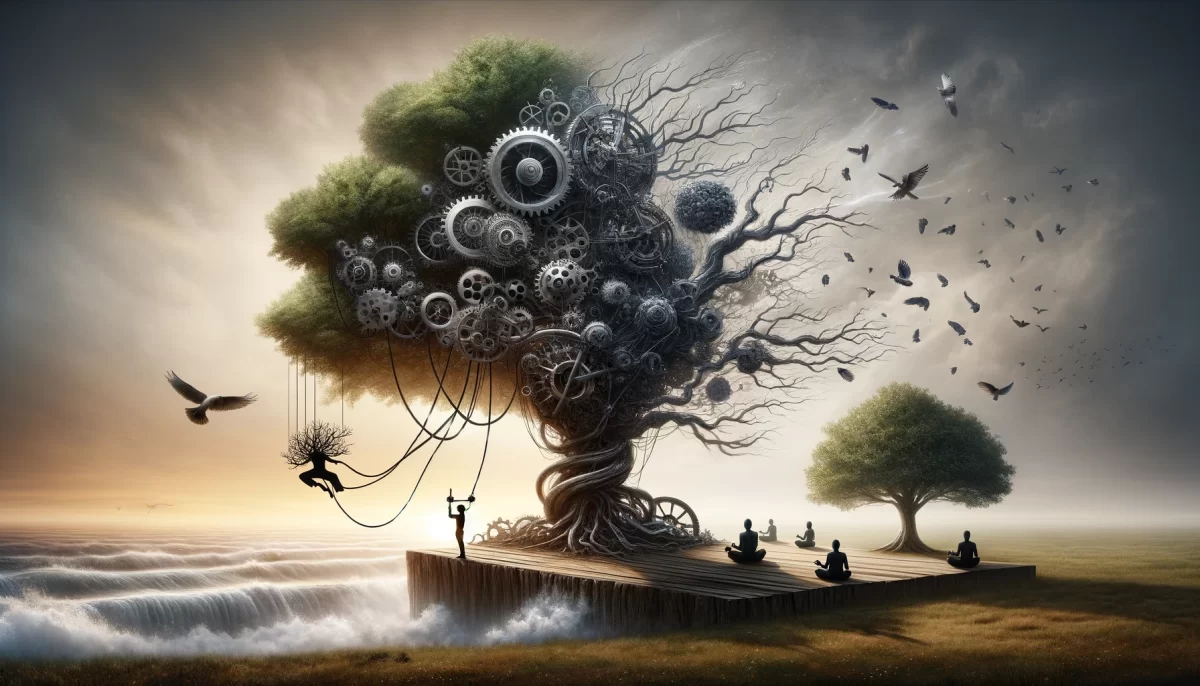

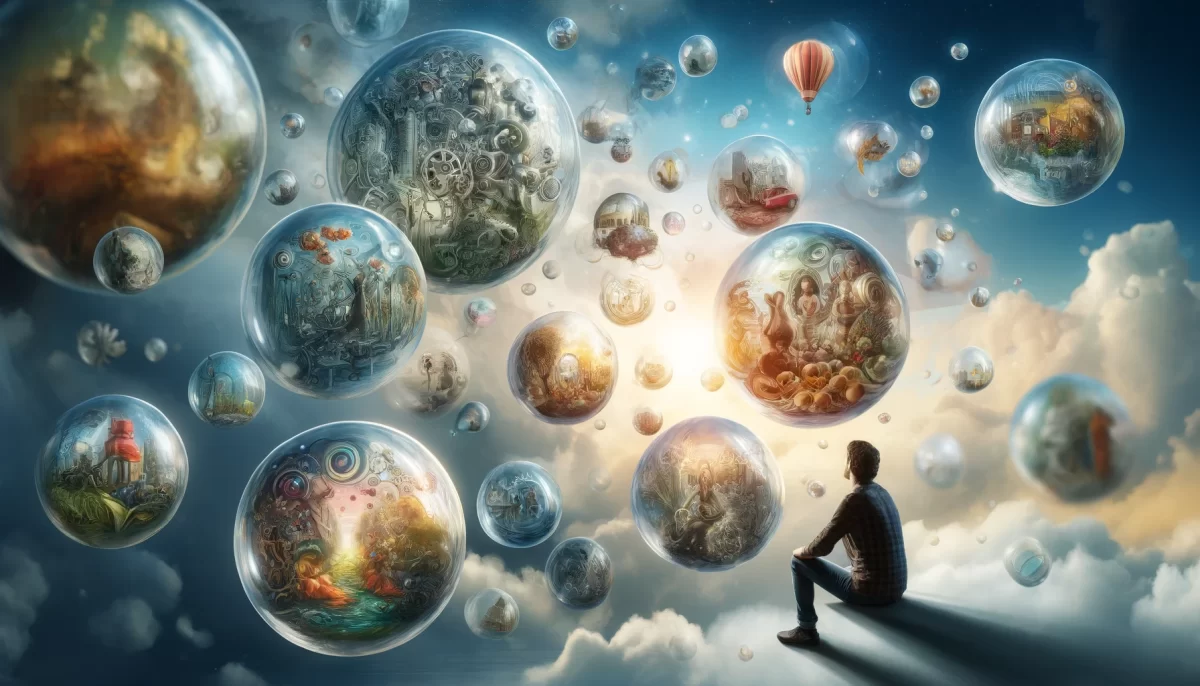
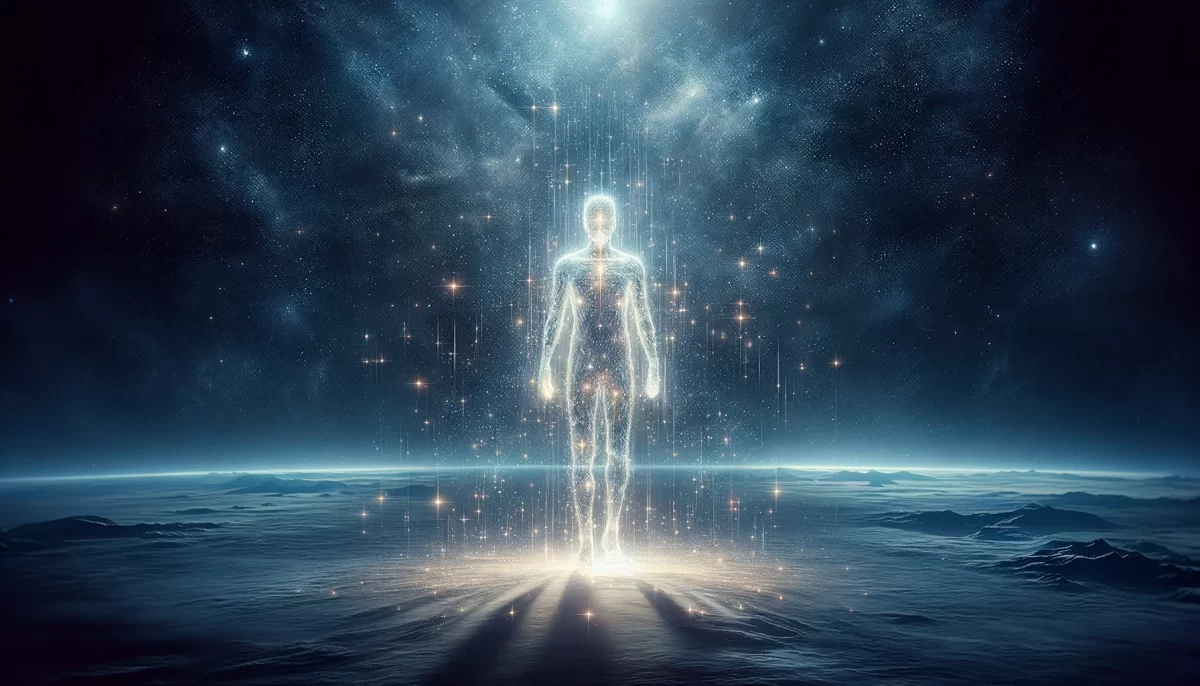
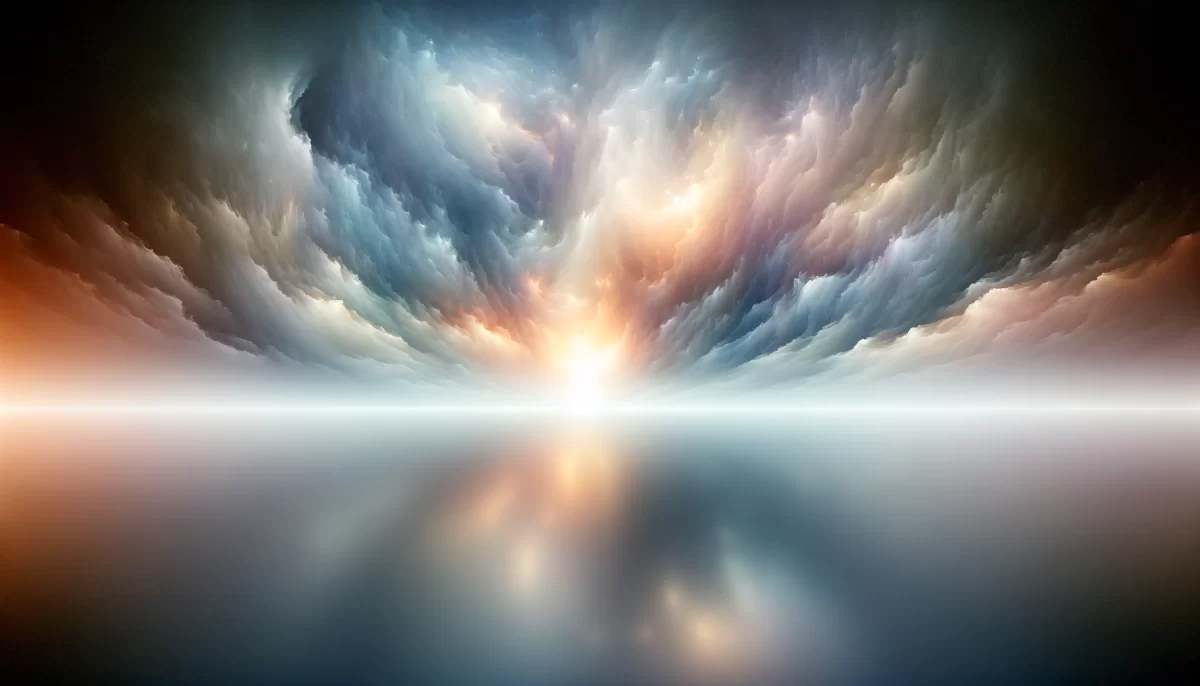



Leave a Reply